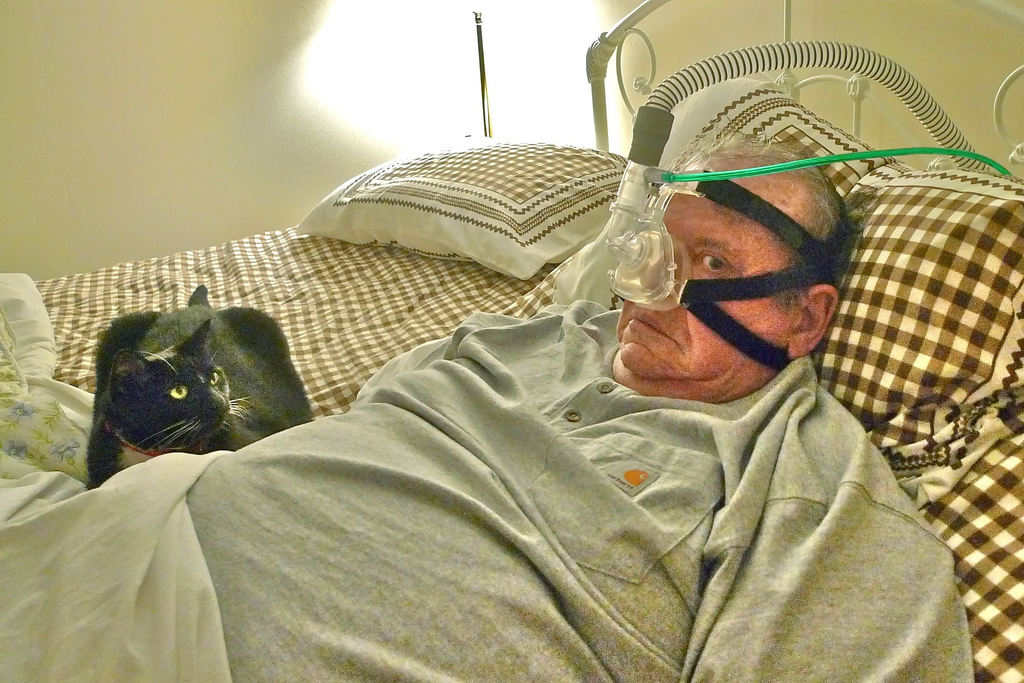-
Tips for becoming a good boxer - November 6, 2020
-
7 expert tips for making your hens night a memorable one - November 6, 2020
-
5 reasons to host your Christmas party on a cruise boat - November 6, 2020
-
What to do when you’re charged with a crime - November 6, 2020
-
Should you get one or multiple dogs? Here’s all you need to know - November 3, 2020
-
A Guide: How to Build Your Very Own Magic Mirror - February 14, 2019
-
Our Top Inspirational Baseball Stars - November 24, 2018
-
Five Tech Tools That Will Help You Turn Your Blog into a Business - November 24, 2018
-
How to Indulge on Vacation without Expanding Your Waist - November 9, 2018
-
5 Strategies for Businesses to Appeal to Today’s Increasingly Mobile-Crazed Customers - November 9, 2018
Are CPAP Machines Effective?
Long term treatment with continuous positive airway pressure (CPAP) machine doesn’t offer any additional benefit for heart disease patients compared to standard care provided to them, a newly released study has claimed.
Advertisement
However, after a mean follow-up time of 3.7 years for 1,341 usual care and 1,346 CPAP patients included in the final analysis, there was no difference between groups in the primary outcome – a composite of death from any CV cause, myocardial infarction or stroke, and hospitalisation for heart failure, acute coronary syndrome, or transient ischemic attack.
It is a condition caused by throat muscles that relax and obstruct the airway. However, a new study has discovered that using a CPAP machine does not actually reduce the risk of cardiovacular problems. The CPAP participants seemed to have less daytime sleepiness, better mood with fewer symptoms of depression, higher attendance at work, and an improved health-related quality of life and wellbeing. “Since it reduces the brief awakenings caused by the sleep-disordered breathing, individuals have less fragmented sleep and consequently feel more refreshed upon awaking and more alert throughout the day”, explained Dr. Clete Kushida, a professor of psychiatry and behavioral sciences at Stanford School of Medicine who did not contribute to the current study. The same was true for observational research on CPAP patients.
The reason behind this is not known but the authors of the study say that the short interval of time that the patients used the mask for was possibly not enough to affect the frequency of the cardiovascular activity.
The study, funded by the National Health and Medical Research Council of Australia and others, sought to determine whether or not CPAP therapy could be a useful additional treatment for the prevention of these events. However, there may be some risks that CPAP machines can’t fight against. The machine helps the patients by keeping their airway open while they sleep by pumping a stream of air via nostrils.
Sleep apnea is also linked to obesity and remains undiagnosed in many people. The main problem is that many people with sleep apnea find the air mask and hose hooked to the machine uncomfortable during sleep, and give up on the CPAP. While it would be a hard study to accomplish, Dr. Somers said, it could be important to know whether CPAP protects sleepy patients from cardiovascular events. In addition to CPAP, treatment for sleep apnea may include a dental device which repositions the jaw and tongue, surgery, and nerve stimulation. Common symptoms are loud snoring, wheezing or gasping while sleeping.
Advertisement
For more on CPAP therapy, head to the U.S.





























